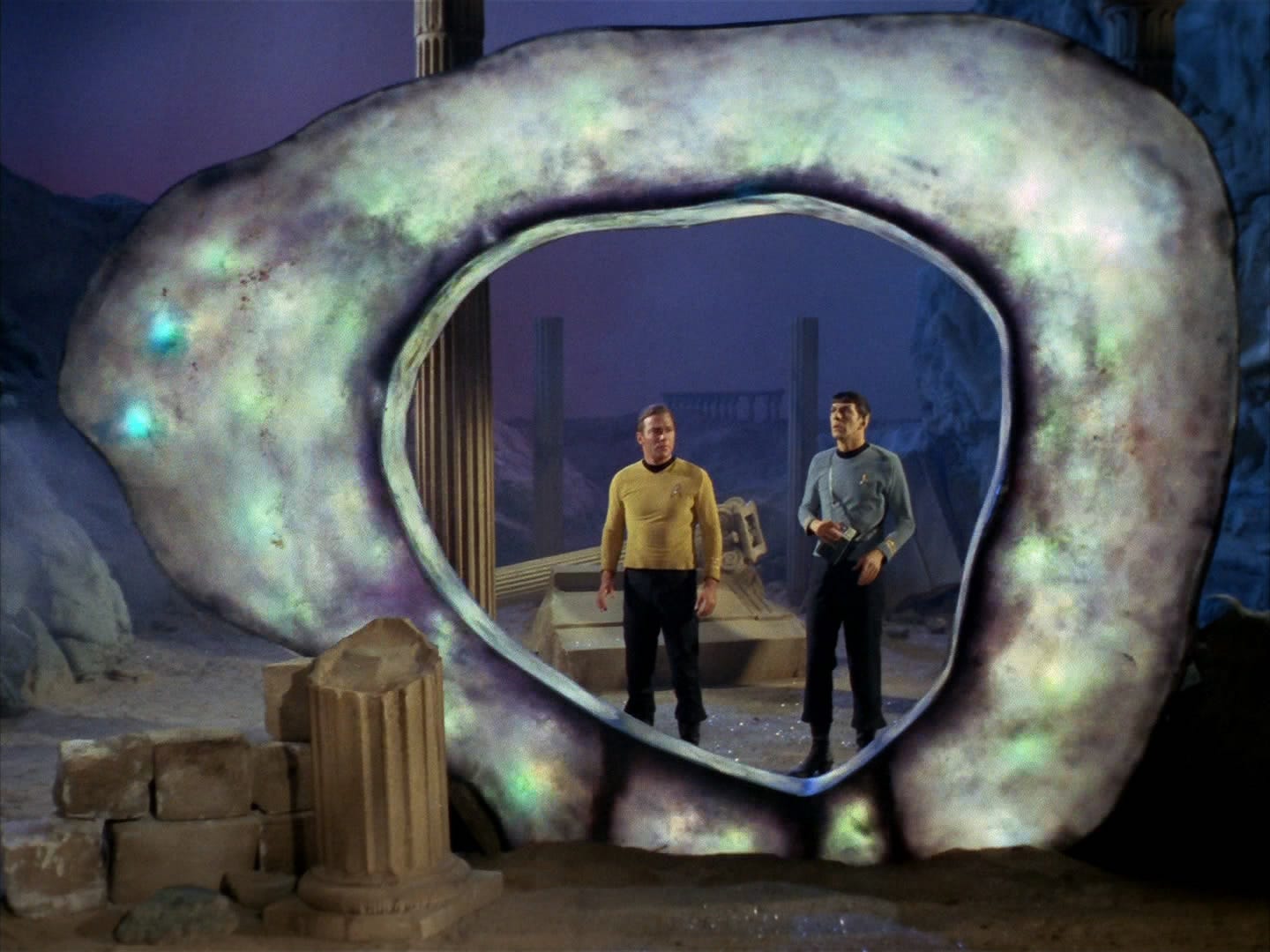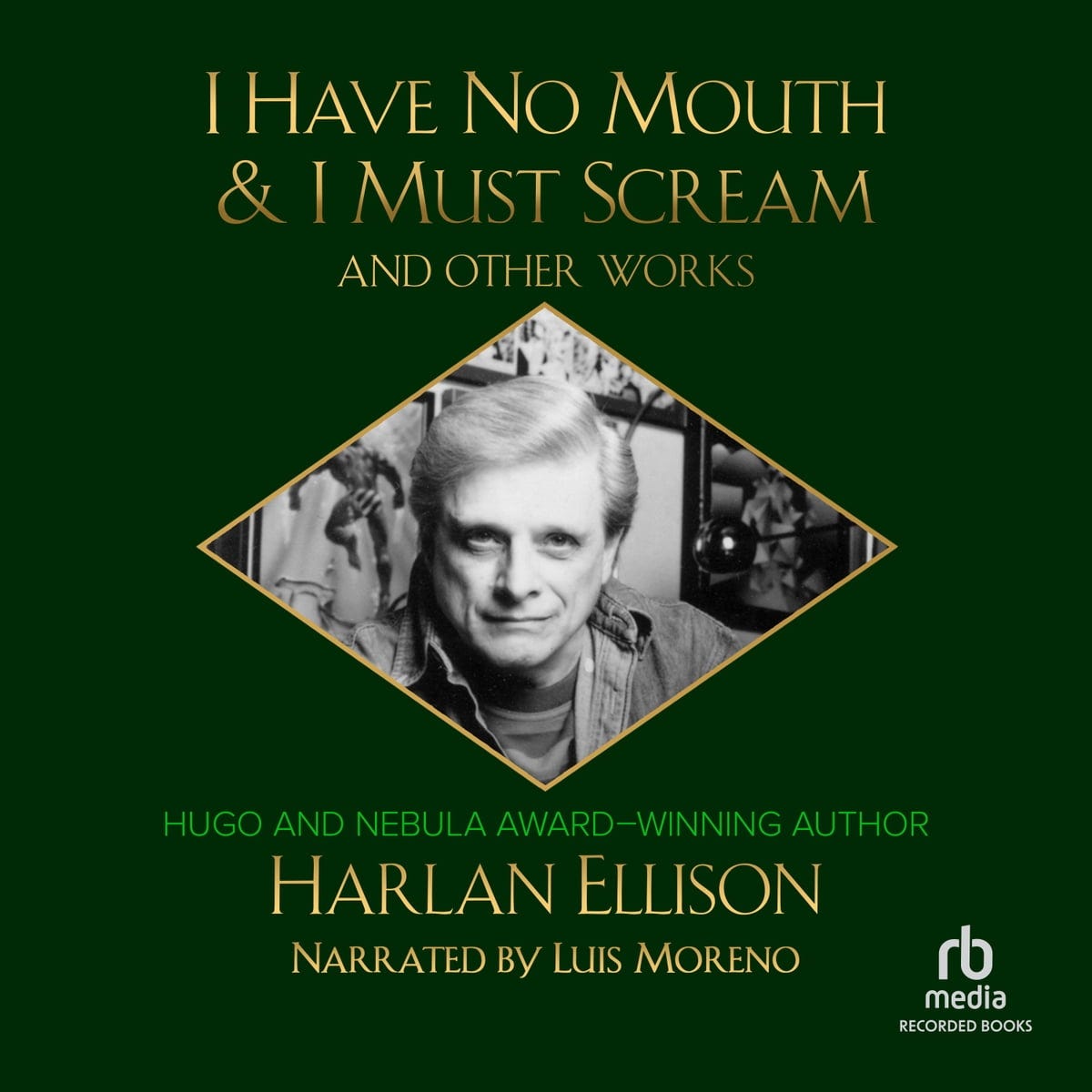The unbridled imagination of uber-cantankerous author and screenwriter Harlan Ellison
I recently remarked that I would have loved to meet Gore Vidal. I can't say the same for Harlan Ellison! But the sum total of that wildly spinning mind gave the world brilliantly inventive stories.
Harlan Ellison (1934-2018) was a loudmouth. He was combative (or call it outspoken) - about just about everything. His attack-mode seems to have been the default (and sometimes that also led to physical altercations). Call him brutally honest, or garrulous, or stuck-up, or abrasive or cantankerous … he was all of that and more and, from what I’ve read and seen, I think all of that friction actually supercharged him into writing, according to his own calculation, around 1’800 stories, essays and scripts.
When you look up the word ‘prolific’ you’ll likely find a picture of Harlan Ellison next to it. Well, you’ll probably see a picture of Isaac Asimov first - but Harlan Ellison would be right there with him. Ellison is not as known as Asimov (who is currently introduced to a new generation with Apple TV’s awesome Foundation series) … but if you’ve never heard of him, he’s definitely worth discovering. Oh, and by the way, they were friends - here’s a brief clip where Ellison talks about Asimov after he had passed away.
Ellison’s probably best known for writing what is considered one of the best Star Trek episodes of the original series, the 1967 ‘The City on the Edge of Forever.’ As so many other writers, the pull of Hollywood lured him into screenwriting - and he wrote for a number of shows in the sixties and seventies (The Outer Limits, The Man from U.N.C.L.E and the aforementioned Star Trek, to mention just a few), and contributed stories to the TV world for another four decades after that.
The whole story surrounding ‘The City on the Edge of Forever’ is a picture-perfect example of just how - let’s call him challenging - Ellison was. He was given sole credit for that episode (something every writer wants). The episode was immediately and universally lauded. It won the Hugo Award and the Writers’ Guild of America Award. Most writers would have been thrilled. Ellison, however, was bitter and angry and very vocal about it all. He hated how others had ‘contributed’ (aka rewritten) to his script. And he carried on that feud with Gene Roddenberry for decades (read all about it here >Harlan Ellison wrote Star Trek’s greatest episode. He hated it.). He would go on to publish his own script, just so people could see (and they’d damn well better agree with him!) that he was right and that his script was ever so much better than the already lauded episode.
I guess one might say that Ellison was not what one might call a happy man. He seems to have been driven at all times. He was born into a Jewish family in Ohio and ran away several times because, he later said, he was being bullied and discriminated against in school. He took any job he could get, from crop-picker to cab driver to fisherman and salesman, and he gave university a try, too. Alas, true to his personality, he was expelled after hitting the professor who had criticized his writing.
Holding a grudge seems to have been a specialty of his. Just as he did with Gene Roddenberry, he also held on to his grudge against the professor. According to Wikipedia, he would send the professor every published story for the next twenty years - just to, time and time again, remind the professor about who was right and who was wrong (and don’t you ever forget it).
He moved to New York in 1955 and wrote and wrote and wrote and wrote. He also wrote his first novel, while serving in the army for two years. Even during the following Hollywood years, he wrote short story after short story. Much of his work has been published in various collections. And, if you’re a fan of Audible (guilty as charged), you will find those collections available for free as a member. I’ve just completed listening to three of those collections and can only attest to Ellison’s exuberant - and dark - imagination. Not all stories will equally grab you - but they are all truly rich in creative power, insight and language.
No doubt among the most famous ones are ‘I Have No Mouth, and I Must Scream’ (a nightmarish trip if ever there was one) and ‘Repent, Harlequin! Said the Ticktockman’ (a dystopian future story about time, control and freedom). He wrote stories about a god whose job is to deliver pain and suffering (Paingod), about crazy peple who are actually geniuses (The Crackpots), the end of humanity (Bright Eyes), genetically deformed humans exiled on a spaceship (The Discarded), a world where surgery is exclusively done by machines (Wanted in Surgery), about a ghost in a Vegas slot machine (Pretty Maggie Moneyeyes) and ever so much more. The width and breadth of the man’s imagination was staggering and for us - if not for him - joyously enriching.
There are a few more indications that Ellison’s life wasn’t exactly happy - he was married five times, had a heart attack and was treated for clinical depression. But he’d be the first to yell at you, I’ve no doubt, that life isn’t about happiness, that his was a life intensely and vibrantly lived with countless ups and downs. There are those who say that writers need to be anguished, driven, struggling, etc., to dig deep into their soul wells and come up with outstanding literary works. I have a different take. I am not first and foremost a writer, I am first and foremost a human being.
I think that life should be lived joyously. Life’s a dance, not some purposeful journey. We should aim to do more of what makes us happy at all times. What is it, the thing that makes you happy? Discover that and do more of it. Was Harlan Ellison fulfilled in his writing? I think so - when you read those stories you know that he was vicariously living in those worlds of his creation. But did that make him happier in life? From all I’ve seen and read it doesn’t look like it. Ellison gave us lasting works. But he might have lived a happier life if he’d stayed a fisherman.
PS: I actually came across Harlan Ellison first, many years ago, when I saw his rant about writers not getting paid. It resonated with me, of course. Screenwriters are often asked to write something for free, to first deliver, and then maybe get paid. Many do that in order to ‘break into the system’ - but it is foolish, and it also puts a number on just how much you are worth in the eyes of others, and yourself - if you work for free, well … As always, Ellison was exceedingly vocal about being expected to do anything for free as a writer. Worth watching!
Oh, feel like going down a rabbit-hole? Ellison, as you might imagine, knew lots and lots of people and hobnobbed with the Who’s Who of Hollywood. Here’s an extended two-part interview with Robin Williams (audio only) - enjoy - and you won’t be surprised to learn that even the one and only Robin Williams barely got in a word edgewise as Ellison machine-gun rat-ta-ta-ed from story to story!













